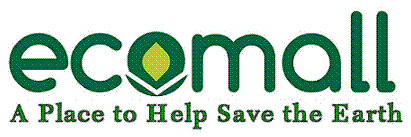

STAYING GREEN
WITH SOLAR LIGHTING
AFTER THE GLOW IS GONE

N
othing lasts forever, not even the best quality solar lights.
And long before the lights themselves have passed their brightest days, odds are that you'll have changed batteries a couple of times and on some fixtures, even the light bulbs.
You've been good to the environment (and probably your pocketbook) by choosing solar. The question: how to stay green when disposing of solar lights and their components?
Batteries
All solar lights use rechargeable batteries of one form or another. Nickel Cadmium (NiCad), Nickel Metal Hydride (NiMH), and Lithium Ion (Li-Ion) are the most common, although some solar lights use rechargeable lead batteries.
While some chemicals are more dangerous than others, all batteries must be disposed of as hazardous materials. (It's not only the responsible thing to do, in many areas it's also the law.)
Treat batteries the same as you should treat household chemicals such as paint thinners, paint, unused pesticides/herbicides, and even medications.
This means they should not be put into your regular trash. Instead, store them up for your municipality's annual or semi-annual hazardous material pick-up of drop-off days.
This is when all hazardous materials are put into a separate, marked container for special handling by collectors, or that you bring them to the local dump yourself. A growing trend among many landfills is to have facilities to handle hazardous materials on a regular basis.
Light Bulbs
If a solar fixture uses LED lights, odds are that by the time the LED wears out, replacing the entire fixture is the most cost-effective solution. There are exceptions, such as solar street lights and some heavy duty solar floodlights.
Some solar lights use halogen or compact fluorescent light (CFL) bulbs, and these DO contain hazardous materials. While halogen bulbs contain different substances, many contain tungsten; all CFLs contain mercury.
Both halogen and CFLs, like batteries, should be disposed of as hazardous materials.
Disposing the Solar Light Itself
I've read in some online blogs that the overall waste factor of solar lights outweighs the positive impacts on the environment. Maybe that was true 10 years ago, but today? Malarkey! Often, you can just remove the batteries and bulbs before placing worn-out solar lights into your regular trash. But, there are better ways to dispose of them.
Over the past decade, landfills have seen an ever-increasing amount of discarded PC and laptop computers, cell and smart phones, video games, GPS navigation systems, and small household appliances. Some contain hazardous materials other than the batteries.
Many waste disposal facilities are expanding ways to responsibly handle discarded electronics. Many dumps now have areas dedicated for electronics and appliances, since so many of the components can be recycled.
Often, you will have to bring these items to the disposal facility yourself or hire somebody to do so.
Yes, you may be able to get away with wrapping them in newspaper and putting them in the trash. Maybe you think that properly disposing of hazardous materials or electronics is a nuisance and that a few here and there won't hurt make a difference.
Just remember that in some form or another, everything put into your trash can eventually ends up in the water supply used for drinking, cooking and bathing. And, who really wants unnecessary and dangerous chemicals on or in their bodies?
Click below to e-mail this article to a friend
or to post a link on your favorite sites.
Thank you!
 |
RELATED LINKS:

Updated Daily!
| * * * IN-HOUSE RESOURCES * * * |
|---|









